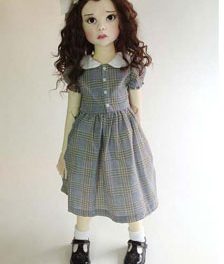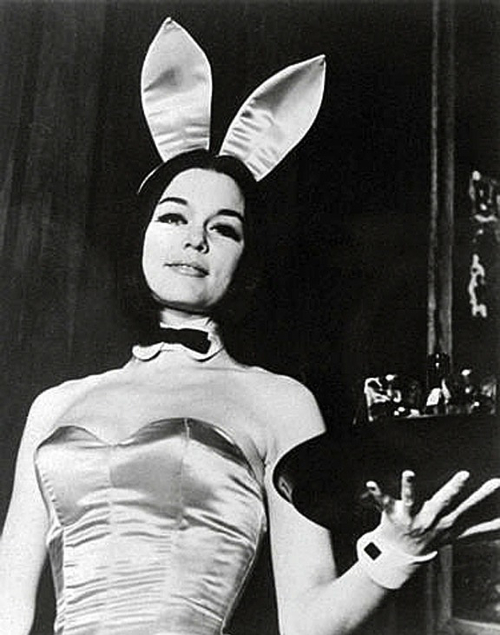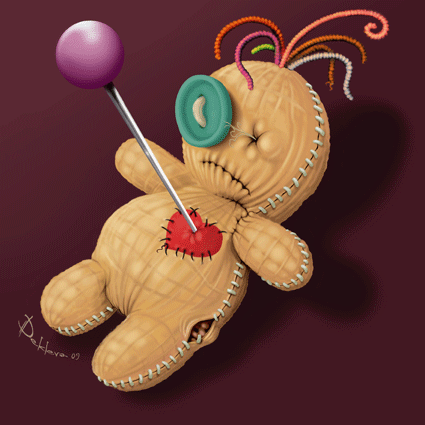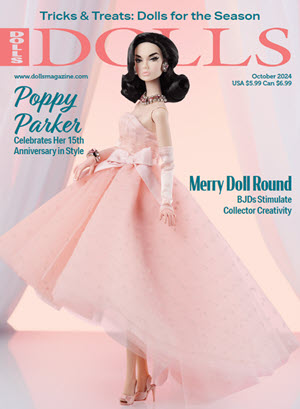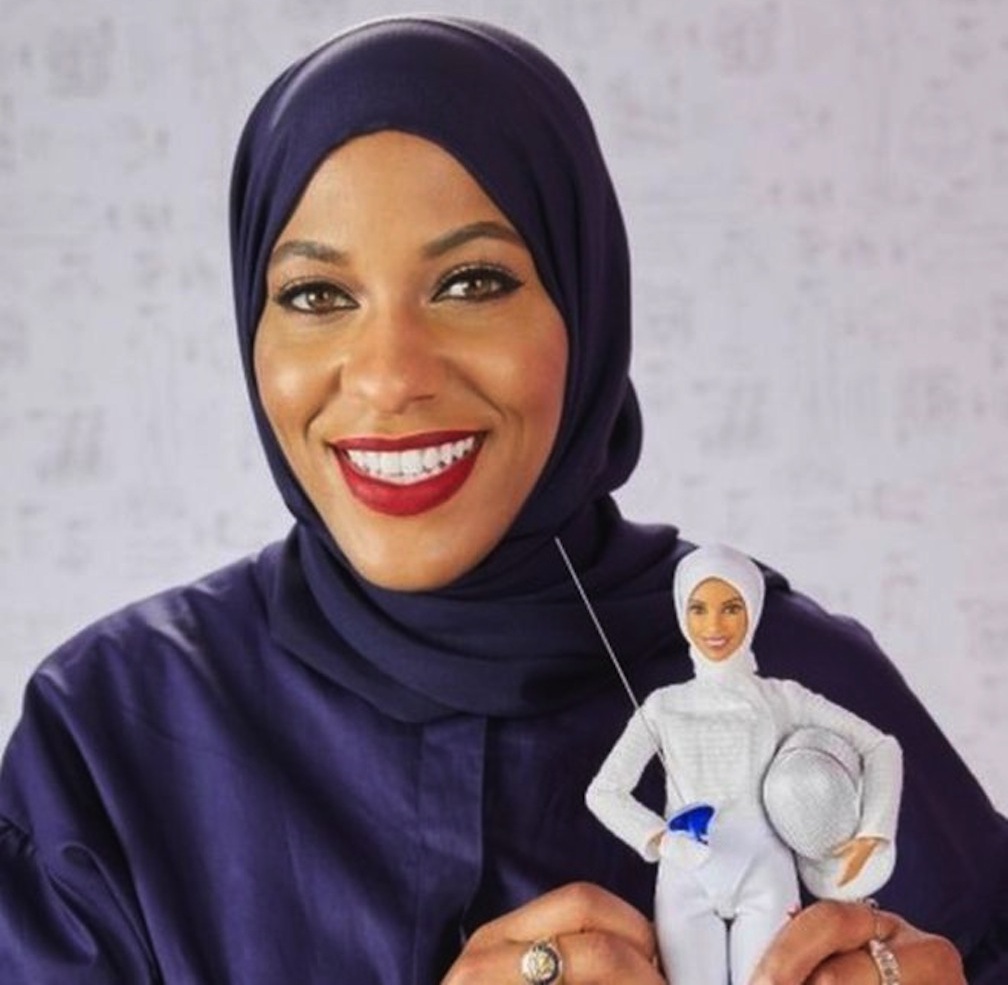
Ibtihaj Muhammad and her Barbie likeness. Photo courtesy of Mattel
When Mattel announced this week that they would be producing a new Shero doll, available for purchase in 2018, I imagine they knew they would be unleashing a social media firestorm. Created right now as a one-of-a-kind tribute doll to Olympian Ibtihaj Muhammad, the doll will be made available next year for consumer purchase. Now, other Olympic athletes have been honored with doll likenesses in the past — in fact, the Shero Barbie line paid homage to Gabby Douglas with a spot-on counterpart. What made this current choice so controversial is what the doll is wearing.
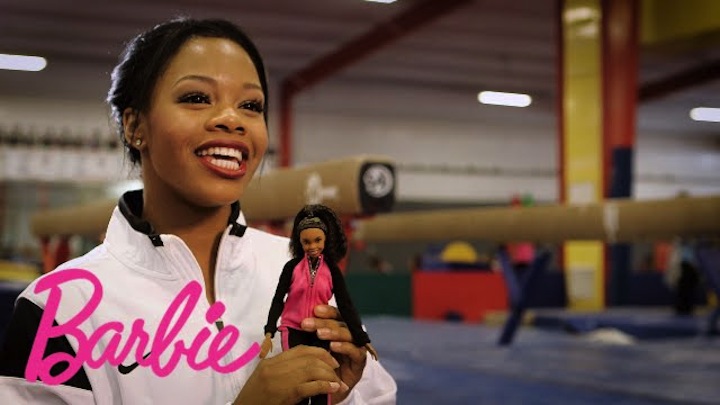
Gabby Douglas and her Shero likeness. Photo courtesy of Mattel
Nope, it’s not the neck-to-toe white fencing costume that has sparked the Internet snarkiness. It is, in fact, the hijab on her head. Ibtihaj Muhammad was the first American woman to compete in the Olympics while wearing a headscarf. At the time of the 2016 Brazil Olympics, Ibtihaj had become a media curiosity. Sports commentators always anxious to fill airtime with gossip, innuendo, and speculation discussed her headwear as a matter of grave national importance. Many wondered if she would rise above the pressure being put on her to stand up and represent for Muslim women everywhere, of if she would crumble under the strain of too much hype and expectations.
At the end of her Brazil stint, Ibtihaj did receive a Bronze team medal in the saber event. She didn’t earn one as an individual competitor, perhaps falling prey to the very anxieties that the “concerned” media helped to stoke. In any case, Ibtihaj had her moment in the sun, even though she was more wrapped up than her other U.S. colleagues.
Attending the Glamour Women of the Year Awards held in New York City this month, the Mattel designers introduced Ibtihaj to her “mini me.” The New Jersey–based athlete was overjoyed to see what the talented artists had dreamed up for her. Surveying it from every angle, Ibtihaj declared, “They got the ‘Olympic-medal-thick’ legs right!”
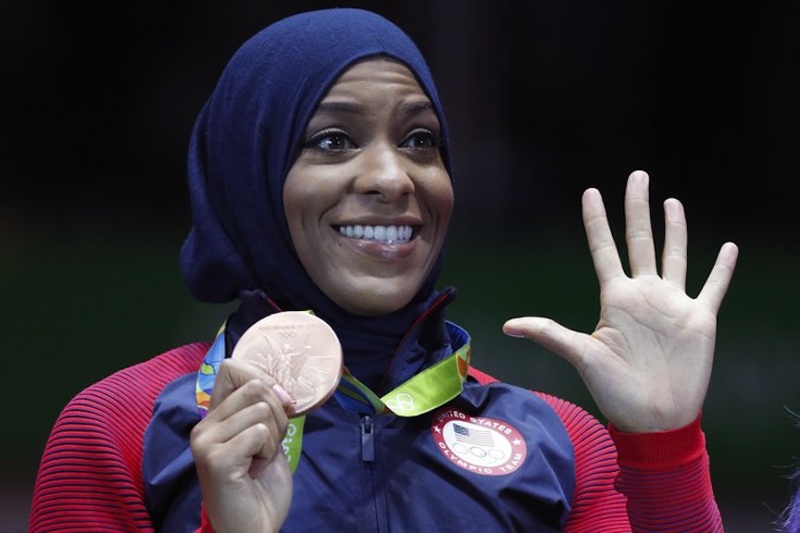
In Rio 2016, making history and receiving her team bronze medal. Photo courtesy Ibtihaj Muhammad Twitter Account
In front of a packed auditorium, the 31-year-old athlete began to play with the doll, turning it in all directions. Satisfied that the doll looked strong and capable, plus did not lose its headcovering, Ibtihaj joked, “This was the perfect hijab moment right here!”
Unveiling the doll at the Glamour magazine award ceremony was a masterful stroke of promotion by Mattel. They assured themselves that they would gain coverage on television news stations, entertainment channels, and by bloggers the world over. Twitter loved learning about this new doll — not because the forum is filled with forward-thinking feminists, but rather because cynics, haters, and trolls can unleash hostility in 280 characters. (Yes, Twitter has doubled its character count, allowing for double the trash talk and double the cyber stalking.)
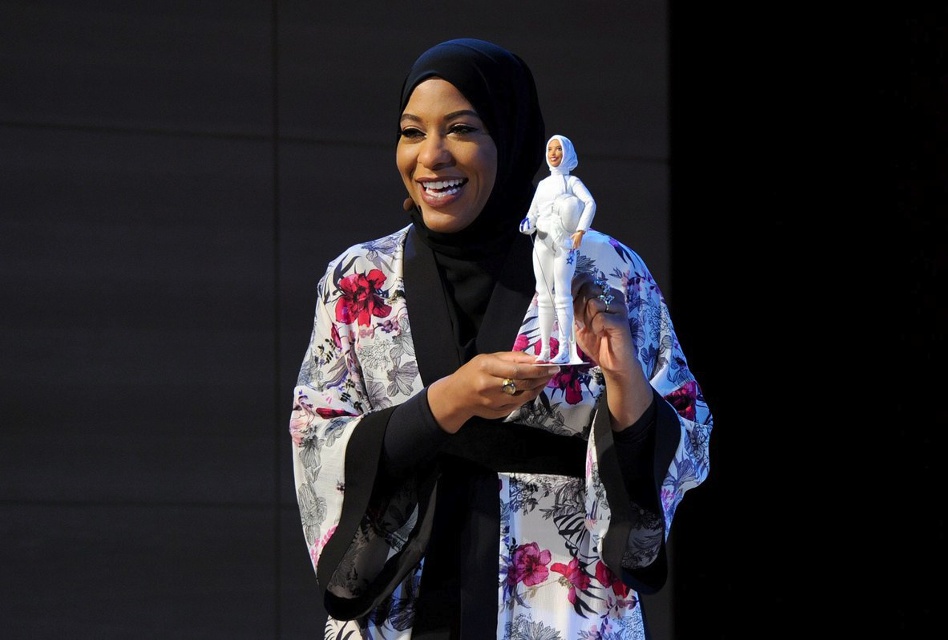
Ibtihaj Muhammad shows the Barbie made in her likeness at an award ceremony, and posted this photo on her Twitter account.
The main bashing of this Shero doll had to do with the aforementioned hijab. There was no negativity about her race, failure to nab gold, or lack of visible sex appeal. Rather, the complaints were about the doll sporting a hijab and a declaration of Mattel’s surrender to the invading Islamic hordes.
Because of America’s and many other nation’s run-ins with ISIS and other Islamic-extremist terrorist groups, the sight of the hijab has become inflammatory for many people. It is seen as an emblem of female submission, male domination, and pretty much servitude to a cruel and callous religious patriarchy. People who are not Islamic scholars, but who have opinions and a keyboard, liken this headscarf to being mentally and physically shackled. They see the hijab as a handcuff.
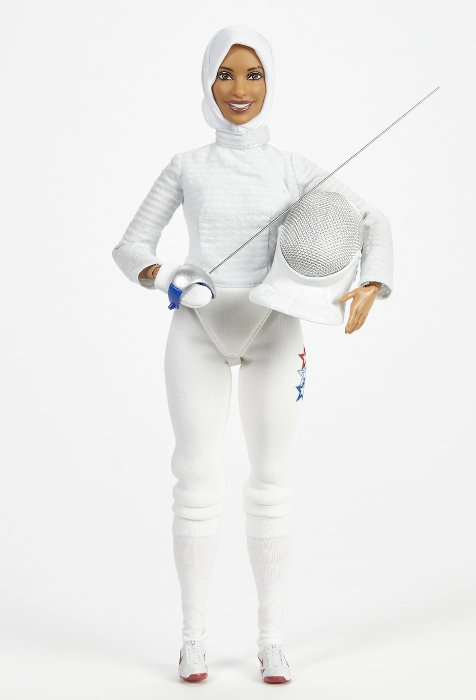
An Olympic fencer doll, which happens to be wearing the hijab. Photo courtesy of Mattel
Sitting down with the New York Times on November 13, Ibtihaj Muhammad attempted to put this whole kerchief kerfuffle into proper perspective: “I have always envisioned myself in places where society told me I did not belong. There is so much focus on Muslim women in hijab, and oppression and being docile. This is flipping the entire bigoted narrative on its head.”
Yes, it’s quite interesting that this doll could have the potential to take a perception and then turn it upside down. Imagine how powerful it would be if this newest Shero Barbie upended the viewpoint of a hijab-wearing woman as meek, subservient, and cowering into one of self-possessed, confident, and determined. When asked how she felt about Mattel’s decision to launch a “hijab Barbie,” Ibtihaj equated it with being revolutionary, hoping that it would help to eradicate some of the stereotypes that have sprung up about Muslim women and their dress codes.
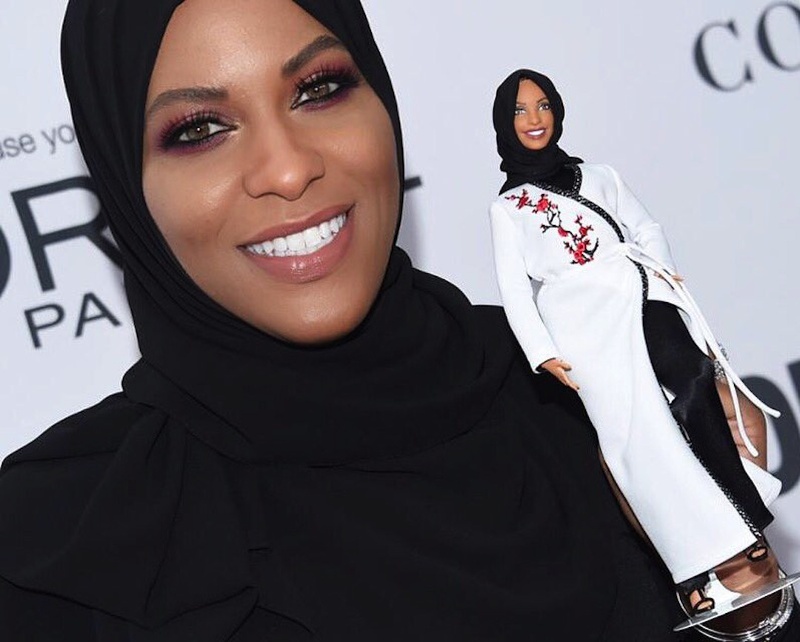
She changed her doll into a dress by @louellashop, Courtesy of Muhammad’s Twitter
In her Twitter account on that same afternoon, Ibtihaj Muhammad included a photo of herself with her doll doppelganger. She tweeted: “Thank you @Mattel for announcing me as the newest member of the @Barbie #Shero family! I’m proud to know that little girls everywhere can now play with a Barbie who chooses to wear hijab! This is a childhood dream come true.” She coupled her sentiments with a crying emoji and a pink heart shot through with an arrow. This tweet was retweeted nearly 5,000 times and was liked more than 13,000 times.
What is loud and clear in her message is that she views the adherence to her faith and the decision to wear the hijab as a choice. She stresses that Barbie chooses to wear it, and she is not being coerced to toe that line. Hopefully, girls around the world will see this athlete’s accomplishments and her devotion to her religion and her cultural customs. This will potentially open their eyes to the belief that Muslim women do not have to be second-class citizens or inferior to their male brethren. They can break the barriers that many in their own community have erected against them, and can topple the restrictions that other misjudging folks patrol.
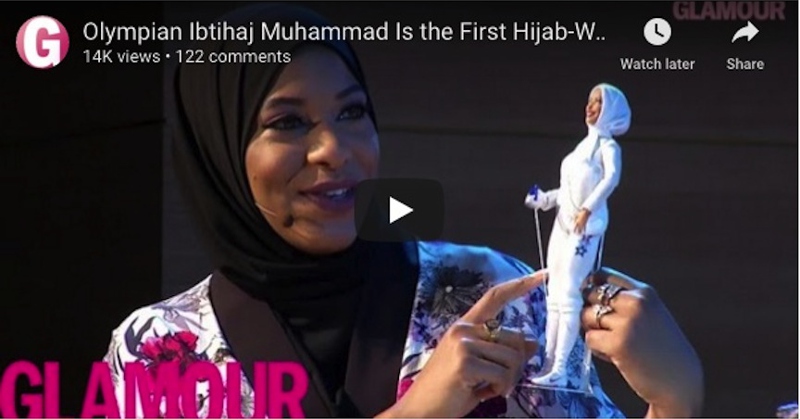
Glamour magazine has posted a video about the doll’s creation and reactions.
“When I think about my own journey, me being a Muslim girl involved in the sport of fencing, there were people who made me feel like I didn’t belong. For all those people who didn’t believe in me, this Barbie doll is for you,” she told the BBC.
In that interview, she further revealed: “I’m proud to know that little girls who wear hijab, and, just as powerfully, those who don’t can play with a Barbie who chooses to wear a headscarf. I had to make tiny hijab out of tissues for my Barbies when I was a child. This way they would look more like me and my sisters.”
Commenting on the portrait doll’s physically fit silhouette, Ibtihaj Muhammad proudly opined, “She’s a Barbie who is strong enough to wield a giant sabre and dedicated enough to spend years working her way to an Olympic medal.”

